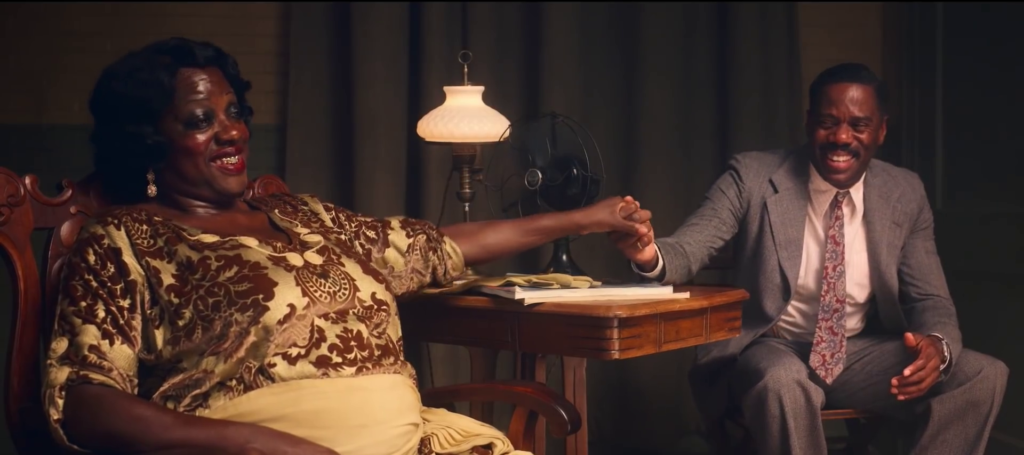Review: "Ma Rainey's Black Bottom"
Image from Ma Rainey’s Black Bottom, courtesy Netflix
3 January 2021 ∙ Originally published in Dig Boston
Though you’d think a small film based on a one-room play would seem painfully claustrophobic right now, Ma Rainey’s Black Bottom is anything but. Its characters might be sweaty with the lust and tension of a shaky recording session, but Wolfe’s film is like an hour spent listening to your favorite music by an open window.
Based on August Wilson’s 1982 play, Ma Rainey is the second production in Denzel Washington’s noble effort to bring all ten of the playwright’s Pittsburgh Cycle to the screen, following 2016’s Fences. It is also, regrettably, Chadwick Boseman’s final film, after his untimely passing earlier this year. Bittersweetly, it is probably his finest performance. As Levee, a hot-tempered trumpeter itching to break out, Boseman displays the vitality of someone half his age while imbuing him with a naiveté only a seasoned actor could identify. Just as in Black Panther (2018), he practically radiates off the screen—no small feat when going toe to toe with heavyweights Viola Davis and Colman Domingo.
Davis has never been more imperial than as Rainey, the legendary “Mother of the Blues,” even if the film doesn’t make much of her could-be grand entrance or exit. Ill-tempered and frustrated, Rainey is a legend made tired by the knowledge of her own dying significance. Dying, not because her talent is going away; not that. Dying because, as she sees it, “as soon as they get my voice down on them recording machines, then it’s just like if I’d be some whore and they roll over and put their pants on.”
Image from Ma Rainey’s Black Bottom, courtesy Netflix
This is a woman whose live audiences and talent are all she’s got in a man’s world, and it’s a bit of a shame that Wolfe’s mostly unobtrusive direction does not play up her grandeur, even as it plays up the in-fighting between the boys in her band: While Rainey fans herself and tries to keep her younger lover, Dussie Mae (Taylour Paige), from Levee’s waiting hands, de facto bandleader Cutler (Domingo) struggles to keep the ambitious Levee from clashing with the senior players (played with generous charisma by Glynn Turman and Michael Potts). They argue about egos and instruments, along the way getting at their experiences as Black men in white America, and all the terror that can come with.
God and blues and shiny new shoes are discussed, and cinematographer Tobias A. Schliessler’s images frame these conversations with balanced importance, giving weight to each while still landing the more soliloquized setpieces. Ruben Santiago-Hudson’s screenplay does a first-rate job translating Wilson’s play, knowing when and how to leave the recording space behind for practice rooms and nearby Chicago streets.
Domingo provides not only the older wizened counterpart to the youthful Levee, but performs as a third lead in his own right, and should command top-billing along with Davis and Boseman. Whether he has more or less screen time than those two I’m not sure, but—as has become customary for this reliable if oft-unsung MVP—his performance is disciplined, earthy, and megawatted.
Despite lacking a certain oomph in the portrayal of its iconic titular character, Wolfe’s adaptation is a lowkey, low-stakes affair with excellent performances and captivating tension. [★★★★]

